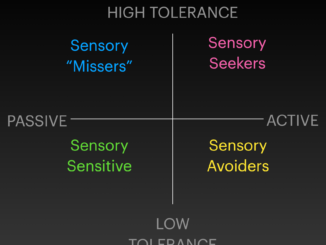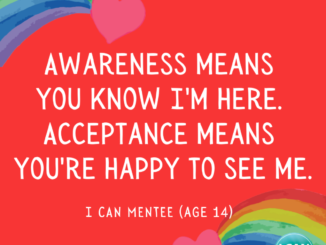If I say “imagine a historical figure who was known for struggling with socializing, possibly even considered a ‘failure’ by mainstream criteria such as schooling, yet was intensely successful in one particular area”, you might think of various great inventors, writers, scientists, mathematicians…
While it’s dangerous to retroactively try to diagnose people with autism, especially if you accept autism from a strengths-based perspective, you start realizing just how many people fit the criteria. (Especially the ones who were, eventually, considered a “success” by societal standards.)
The reason that I bring up this entire category of historical figures, then, is because the reason that you know them — that you can even answer this question — is because of one specific component of their autism: their special interests.
Intense, passionate hyperfixation on a particular topic or a series of topics is a hallmark of Autistic people. This could be collecting/hoarding objects, learning facts about a particular interest, engaging deeply in a hobby, etc — it has many forms.
If someone’s special interest is important enough to be world-changing (like inventing a revolutionary physics theorem or inventing a cutting-edge new technology), then society is largely willing to forgive and even, eventually, to forget about their difficulties with speech, or social interaction…you know, all the things that would make somebody classify somebody else as “high-” or “low-functioning” (like we talked about a few days ago). Because those classifications are really just descriptors of how challenging the autistic person is for allistic people to “deal with”…and if you’re busy changing their world for the better, well, allistic people are more likely to be willing to let some neurodivergent nonverbal communications slide.
(If I was talking out loud, you would hear me using a very sarcastic tone, but I’m saying things that are entirely true!)
But what about the comparatively massive amount of other people, whose special interests were not societally important enough to bring them fame? What about the kids and people now?
Are we only willing to let autistic people have special interests if those interests are somehow beneficial to allistic people?
I was thinking about this the other day as we talked about a child on my caseload. I’m going to change some details here in order to protect their privacy, but the gist of the story stays the same.
This child is in early elementary (primary) school, and has a special interest in space: they can talk at length about high-level specifics of nebulae and stars and incredibly specific details of planets that are nowhere near our solar system.
Well, hanging in one of the hallways in the school is a random old poster with a picture of our solar system. I call it an old poster because it still has Pluto. 🙂
And this child stopped in front of the poster and protested that it was calling Pluto a planet. The teacher they were with at the time reassured them that they were right; Pluto is not classified as a planet anymore and that information has been updated in, like, curriculum, but this is just an old poster and “not that important”. But it was DEEPLY important to the child. Why do we have a poster hanging up with wrong information on it!
Anyway, the teacher brought this up at the child’s next IEP meeting in order for the team to discuss how the child’s “tendency to hyperfixate and to need to be right” is a problem and how to solve it. And I was over there thinking, yeah, okay, but fast forward 30 years to when the child is an astrophysicist and this becomes a funny story: “Remember how when you were in elementary school you were so passionate about space that you insisted the teacher fix a random poster in the hallway?”
Special interests don’t need to be pathologized. They are incredible built-in coping mechanisms for a monotropic mind in a polytropic world. The ability to tune out the world around you and dive deep into something that you love entirely is amazing!
And, to be absolutely clear, as with stims, there are more and less socially appropriate/acceptable special interests, and I’m not only suggesting that the ones that can be turned into a job offer later on are valuable — that’s a harmful and excessively capitalistic POV. I’m saying that even the kids who are obsessed with numbers and counting, or wheels, or types of cereal and memorizing their nutritional facts — each of those are kids I’ve met, by the way — all their special interests are valuable and important and suppressing them is harmful and inappropriate.



